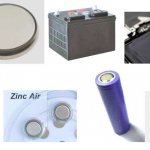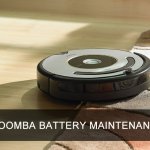What are the reasons for the leakage of lithium polymer battery packaging corrosion?
At present, the batteries used in the market are mainly divided into three categories, soft pack batteries, cylindrical batteries, and square batteries. The most important applications of soft pack batteries are concentrated in digital CE products. Lithium polymer batteries generally refer to lithium polymer batteries, depending on the electrolyte material used in the lithium ion battery. Here we simply introduce what are the reasons for the corrosion leakage of the soft lithium polymer battery package.
Manufacturing process of lithium polymer battery
The manufacturing of lipo batteries is mainly divided into pre-processes and post-processes. The processes of stirring, coating, and rolling of various types of batteries are largely different. Different types of batteries have begun to differentiate into the post-process and manufacture different types battery. For lithium batteries, because moisture will react with the electrolyte to produce HF, which will damage the battery ’s SEI film and eventually cause the battery performance to decay sharply, a good seal can determine battery performance. For soft-pack batteries, the main process for sealing the battery is the packaging process. The quality of the package directly determines the quality of the battery.

Causes of Corrosion and Leakage of Lithium polymer Battery Packages
a) Cracks at the seal due to aging of the sealant;
b) Lithium batteries are severely overcharged, and different types of lithium battery packs are used in combination, resulting in poor battery gas recombination efficiency;
c) When the acid is poured, the acid liquid splashes out, causing a false leak.
d) Usually the output current is too large, the continuous discharge time is too long, and the temperature of the soft lithium polymer battery increases. There are also batteries that have been used for a long time and may leak fluid.
e) There is no acid in dry batteries. Generally, batteries are zinc chloride and ammonium chloride liquids. Alkaline batteries are potassium hydroxide liquid.
Method for detecting corrosion leakage of lithium polymer battery
- Appearance inspection. Through 100% manual inspection, observe whether there is electrolyte leakage and battery appearance deformation. This method is the most traditional method, and it is also the easiest to operate in reality. However, depending on the processing of personnel, its foolproof performance is poor.
- Vacuum detection. The vacuum method is used to make use of the characteristics of the leak of the leaking battery to evacuate the entire battery, forming a large pressure difference between the inside and outside of the leaking battery. The electrolyte may accompany the internal output air flow out of the battery. Ill single out. This method has a low detection rate, but it is also a commonly used method because of its good operability.
- Leak detection. Once a battery leaks, the internal electrolyte will flow out of the battery. If the electrolyte can be detected sensitively, you can determine whether the battery will leak. The limitation of this method is that there is no formed test facility.
Prevent corrosion and leakage of lipo battery package
- When welding the battery case and the cap, it should be welded firmly and tightly. There should be no leaks or false welds, and there should be no cracks or cracks in the weld.
- When the steel ball is sealed, the size of the steel ball is appropriate, and the material of the steel ball is the same as that of the cap. Welding without cracks, cracks and welding.
- The positive pole of the cap is tightly connected with no gap, and the insulating gasket is elastic, corrosion-resistant and difficult to age.

Matters needing attention for lipo battery
Do not overcharge when charging
The chemical nature of lithium is very active and it is easy to burn. When the battery is charged and discharged, the internal temperature of the battery continues to rise, the gas generated during the activation process expands, the internal pressure of the battery increases, and the pressure reaches a certain level. , Causing leakage, fire, or even explosion. The lipo battery will only swell.
Pay attention to short circuit
Polymer soft pack lithium batteries avoid overcharging and overdischarging during the charging process, and avoid internal short circuits and external short circuits. Although, most lithium-ion batteries now have short-circuit protection circuits and explosion-proof wires. In many cases, this protection circuit may not work in various situations, and explosion-proof wires can only play a limited role.
Storage temperature
In the environment with a temperature of 20 ± 5 ℃ and a humidity of not more than 50%, the erosion of aluminum foil by air and water vapor.
In terms of soft-pack batteries, the main process of sealing the battery is the packaging process. The quality of the package directly determines the quality of the battery. To achieve the maximum performance of a lithium battery, you need to use it frequently, so that the electrons in the lithium battery are always in a flowing state. If you do not use lithium batteries often, please remember to complete a charging cycle for lithium batteries every month, and do a power calibration, that is, deep charge and deep charge once.



